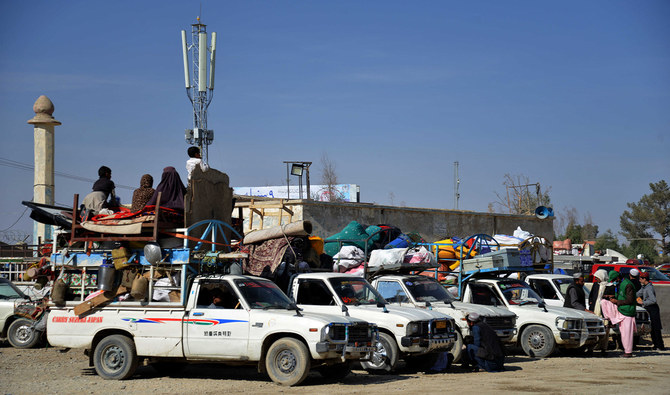ISLAMABAD: Over half a million Afghans living in Pakistan have been repatriated to their home country since the government launched a deportation drive last year, state broadcaster Radio Pakistan said on Tuesday, with almost 10,000 returning in the last ten days.
Until November last year before it began the deportation drive, Pakistan was home to over 4 million Afghan migrants and refugees, about 1.7 million of whom were undocumented, according to the government. Afghans make up the largest portion of migrants, many of whom came after the Taliban took over Kabul in 2021, but a large number have been present since the 1979 Soviet invasion of Afghanistan.
The expulsion drive started after a spike in suicide bombings last year which the Pakistan government — without providing evidence — said mostly involves Afghans. Islamabad has also blamed them for smuggling and other militant violence and crime. At the time, cash-strapped Pakistan, navigating record inflation and a tough International Monetary Fund bailout program, also said undocumented migrants had drained its resources for decades.
At the same time, Islamabad insists the deportation drive is not aimed specifically at Afghans but at all those living illegally in Pakistan.
“9,685 more illegal Afghan nationals returned to their country over the last ten days,” Radio Pakistan reported. “The [total] figure of illegal Afghan returnees has reached 577,239.”
In October 2023, Pakistan announced phase one of the ‘Illegal Foreigners’ Repatriation Plan’ with a 30-day deadline for “undocumented” aliens to leave the country or be subject to deportation, putting 1.4 million Afghan refugees at risk.
In phase two of the ‘repatriation plan,’ around 600,00 Afghans who hold Pakistan-issued Afghan citizenship cards (ACCs) will be expelled while phase three is expected to target those with UNHCR-issued Proof of Registration (PoR) cards.
The deportation drive has led to a spike in tensions between Pakistan and the Taliban rulers in Afghanistan.
Islamabad accuses Afghans of being behind a spate of recent suicide attacks in the country and accuses the Taliban of harboring such militants. The Taliban deny the allegations and say Pakistan’s security issues are a domestic issue.












